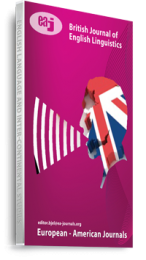Language borrowing, also known as lexical borrowing, occurs when words are assimilated from one language into another. The integration of loan words from foreign languages is a common occurrence in different tongues, contributing to linguistic diversity and reflecting cultural exchange and influence. This research aimed to investigate and analyze the borrowing of food-related words in English and Chinese languages through a comprehensive review of written texts, such as recipes, restaurant menus, articles, and blogs to compile a list of loan words in both languages. Additionally, the paper analyzed the factors contributing to the culinary vocabulary between English and Chinese and the methods of accessing loan words between the two languages, as well as the role of food-related loan vocabulary in reflecting and influencing cultural assimilation and language development. The objectives of this study included identifying and analyzing food-related borrowing words in English and Chinese, comparing and contrasting patterns and frequency of borrowing in food-related vocabulary between the two languages, and exploring the cultural implications and language development arising from the usage of borrowing words in food-related contexts. Through this analysis, this paper gained insights into the linguistic and cultural exchanges between English and Chinese, shedding light on the dynamic nature of language and its impact on food-related terminology.
Keywords: Chinese, Corpus, English, borrowing words, cultural implication, food-related, language development

